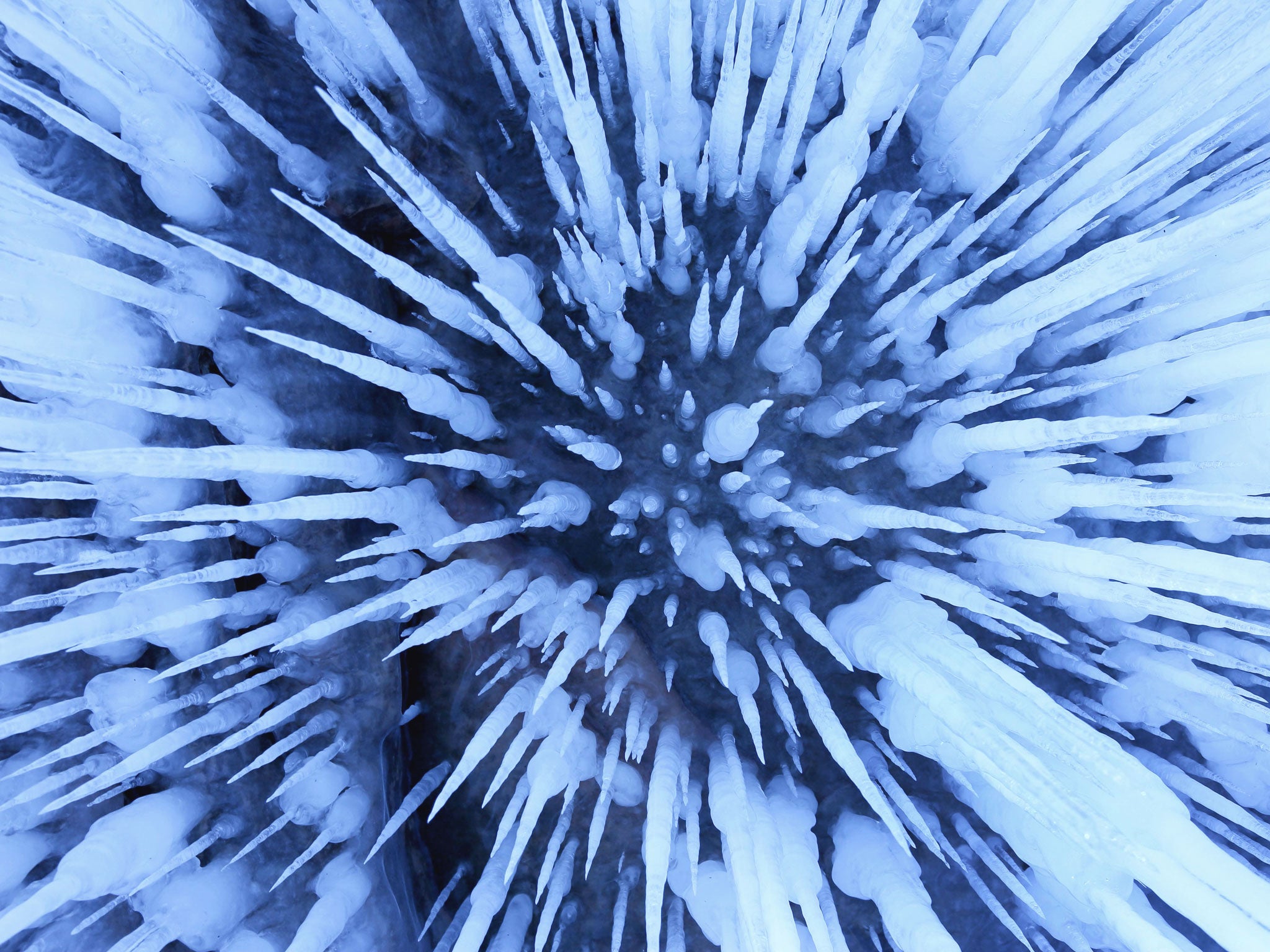Early US winter sees spectacular icicles form in caves along Lake Superior
The chill saw the Great Lakes of the midwest turn into giant, frozen plains

Your support helps us to tell the story
From reproductive rights to climate change to Big Tech, The Independent is on the ground when the story is developing. Whether it's investigating the financials of Elon Musk's pro-Trump PAC or producing our latest documentary, 'The A Word', which shines a light on the American women fighting for reproductive rights, we know how important it is to parse out the facts from the messaging.
At such a critical moment in US history, we need reporters on the ground. Your donation allows us to keep sending journalists to speak to both sides of the story.
The Independent is trusted by Americans across the entire political spectrum. And unlike many other quality news outlets, we choose not to lock Americans out of our reporting and analysis with paywalls. We believe quality journalism should be available to everyone, paid for by those who can afford it.
Your support makes all the difference.An arctic siege gripping the Upper Midwest of the US has turned most of the Great Lakes that dot the area into vast frozen plains, blanketed in white.
At Apostle Islands National Lakeshore in northern Wisconsin, caves formed over centuries along the Lake Superior shoreline by crashing waves, freezing and thawing, have been transformed into showplaces for dazzling natural ice sculptures.
Waterfalls frozen into towering pillars extend from cliffs to the lakeshore.
Icicles by the millions dangle from the cave ceilings like giant chandeliers, many as delicate and sharp as needles, others so intricate they appear to have been carved by a master craftsman.
Cold winters are nothing new here, but this year's temperatures have been so consistently low that park officials say they've made the ice formations particularly beautiful by preventing freeze-and-thaw cycles that cause blurring.
Another benefit: The caves usually are accessible only by water, but Superior's rock-solid surface is letting people walk to them for the first time since 2009.
About 35,000 have made the trek to see them this year.
The icy conditions across the US came to a head in early January, when a town called Hell froze over, boiling water could be turned into snow and the Niagara Falls froze in its tracks - quite literally.
The weather conditions were produced by a polar vortex so severe that even polar bears at the Lincoln Park zoo in Chicago were brought inside as the mercury dropped to a record low of -26C.
AP
Join our commenting forum
Join thought-provoking conversations, follow other Independent readers and see their replies
Comments